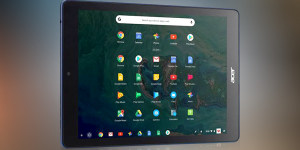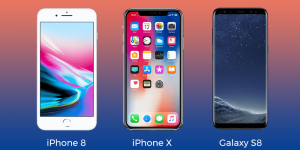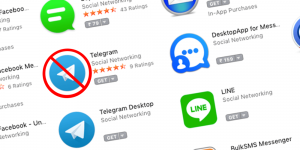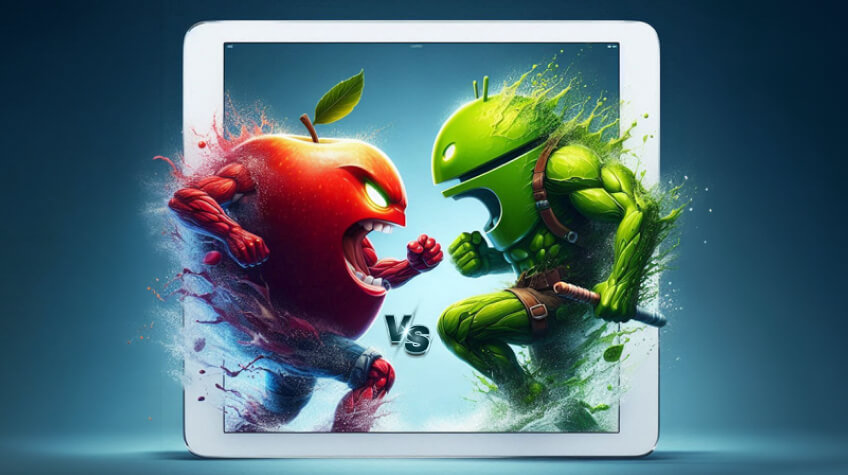
In the tech-savvy environment of today, tablets have evolved into a basic tool for both personal and professional usage. Apple and Android are two big participants controlling this industry. Every one of them has special qualities and benefits, hence customers’ choosing between them is quite important. This article provides a thorough comparison of Apple and Android tablets in order to guide your choice.
Here is a complete guide on Apple Vs Android Tablets
Overview of Apple and Android Tablets
➥ Apple Tablets
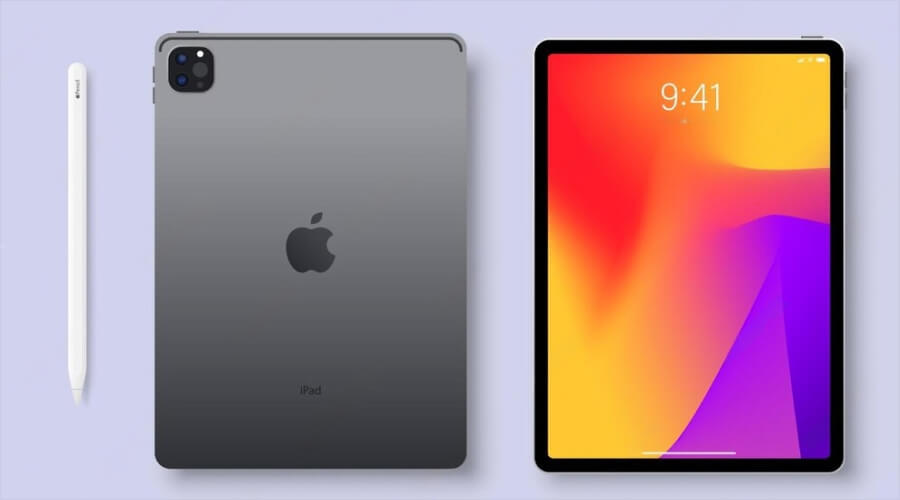
Apple Inc. designs Apple tablets, also known as iPads. Renowned for their superior build quality, flawless connectivity with other Apple devices, and easy interface, they operate on the iOS/iPadOS operating system. Apple provides many variants, each suited for distinct purposes and preferences: the iPad, iPad Mini, iPad Air, and iPad Pro.
➥ Android Tablets
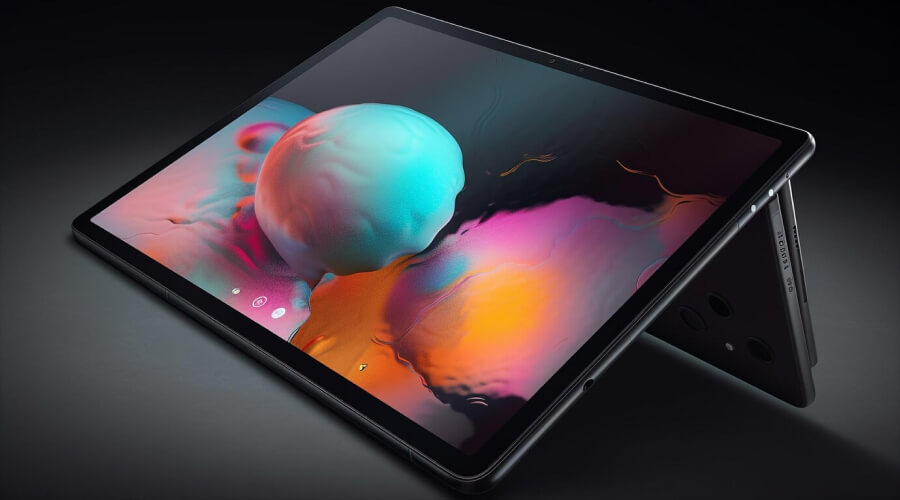
Among the many manufacturers that create Android tablets are Samsung, Google, Huawei, and Lenovo. Running on the Android operating system, these tablets provide consumers a broad spectrum of options regarding hardware, cost, and functionality. Many people choose Android tablets because of its adaptability and personalizing choices.
Features Comparison
➥ Apple Tablet Features
- Display: High-resolution Retina display.
- Performance: Powered by advanced processors like the A12Z Bionic chip and the M1 chip in the latest models.
- Accessories: Support for Apple Pencil and Magic Keyboard.
- Software: Runs on iOS/iPadOS with regular updates ensuring security and new features.
➥ Android Tablet Features
- Display: Available in a variety of sizes and resolutions, including AMOLED and LCD options.
- Performance: Equipped with processors like Snapdragon, Exynos, and others, depending on the manufacturer.
- Accessories: Support for stylus and keyboard, depending on the model.
- Software: Runs on Android OS with custom manufacturer skins, offering a personalized user experience.
Advantages of Each Platform
➥ Advantages of Apple Tablets
- Ecosystem Integration: Seamless integration with other Apple devices and services.
- Build Quality: Superior build quality and design.
- Software Updates: Regular and timely updates.
- App Optimization: Apps are often optimized for better performance and stability.
➥ Advantages of Android Tablets
- Variety: Greater variety in hardware and price points to suit different budgets.
- Customization: Highly customizable user experience.
- Storage: Many models offer expandable storage options via microSD cards.
- Manufacturers: Wide range of manufacturers and models to choose from.
Disadvantages of Each Platform
➥ Disadvantages of Apple Tablets
- Price: Higher price point compared to many Android tablets.
- Customization: Limited customization options.
- Storage: No expandable storage options.
➥ Disadvantages of Android Tablets
- Software Updates: Inconsistent software updates across different manufacturers.
- Build Quality: Variable build quality depending on the manufacturer.
- Bloatware: Potential for pre-installed bloatware from manufacturers.
Which to Choose?
➥ Criteria for Selection
- Ecosystem Integration: If you already value the Apple ecosystem—iPhone, MacBook, Apple Watch—an Apple tablet might provide a more flawless experience.
- Customization and Variety: An Android tablet can be better suited if you want a highly adjustable device with a large spectrum of hardware options.
Final Thoughts
Apple and Android tablets have different benefits and functions. Your particular tastes and demands will guide your decision. There is a tablet out there that will satisfy your needs regardless of your priorities—build quality, ecosystem integration, customizing, or budget.
In conclusion, Apple and Android tablets are competing with one another, and each has unique benefits. While Android tablets stand out in terms of variety and customization, Apple tablets shine in build quality, ecosystem integration, and frequent software upgrades. Consider your demands and tastes to decide which next tablet best suits them.
FAQs
Q1. Which is better for productivity, Apple or Android tablets?
Because of their strong CPUs, tailored applications, and support of peripherals like the Apple Pencil and Magic Keyboard, Apple tablets—especially the iPad Pro—are often seen as superior for productivity.
Q2. What are the key apps available on each platform?
Both systems include a large selection of applications. While Android gives greater freedom in terms of program customizing and availability, specific applications could be tailored better for iOS/iPad.
Q3. Do Apple tablets support expandable storage?
Apple tablets neither enable expanded storage. You must decide on the storage capacity while buying.
Q4. How do software updates compare between Apple and Android tablets?
Apple regularly and promptly upgrades all of its products. Android upgrades may vary between manufacturers.
Q5. Which tablets offer better performance for gaming?
Both systems provide high-performance gaming tablets, but Apple’s iPad Pro with the M1 processor stands out for its remarkable gaming capability.
Q6. What accessories are available for each platform?
Among Apple’s accessories are the Apple Pencil, Magic Keyboard, and cases. Though availability and compatibility vary by manufacturer, Android tablets also have styluses, keyboards, and casings.
Q7. Is the display quality significantly different between the two?
Both systems have excellent screens. Apple is well-known for its Retina screens; Android tablets provide a range of display technologies including AMOLED and high-resolution LCDs.
Q8. Can Android tablets integrate with other ecosystems like Apple’s?
Although Android tablets have some degree of interaction with other devices, overall, the Apple ecosystem is more smooth than anything else. However, Android is more flexible and compatible with a wider range of devices.

